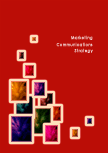Marketing Communications
 |
Details
Textbook:
Pages : 370; Paperback;
210 X 275 mm approx.
Suggested Case Studies
Workbook:
Pages :
299; Paperback;
210 X 275 mm approx, Sample Applied Theory Questions
Pricing
Textbook Price: Rs. 750;
Workbook Price: Rs. 700;
Available only in INDIA
Buy Now
Please allow 5 to 10 days for delivery.
Detail Table of Contents
Brand Management : Chapter 20
SUMMARY:
A brand communicates attributes, benefits, values, culture, personality and use. The power of a brand lies in what is imprinted in the minds of customers. What they learn, feel, see and hear about the brand as a result of experiences over time plays a role. The categories of brands include the manufacturer’s brand, own-label brands and generic brands. Brands play a number of roles like communicating a promise of utility, value, safety and reliability to customers.
|
|
perception, loyalty, patents and trademarks. Brand awareness is the ability of a person to recall the brand name. Perceived quality is a relative term used to establish the overall image of the brand in comparison to alternatives based on key attributes. Brand association is the linking of the brand to the customer.
Brand communications includes four imperative factors critical to the success of the brand. These are consistency in advertising, sales promotion and brand image, sponsorships and spokespersons and packaging. International branding considerations consist of vital factors like language, culture and religion, which a company has to consider in depth. Any shortcomings in this regard can lead to the loss of billions.
The components of corporate image consist of the perceptions of the customer and the corporate itself. Brand management during recession is at the discretion of managers and requires their intuition and good tactics to deal with the situation. This would involve avoiding discounting methods for short-term profitability and sticking to advertising for improving brand awareness.



